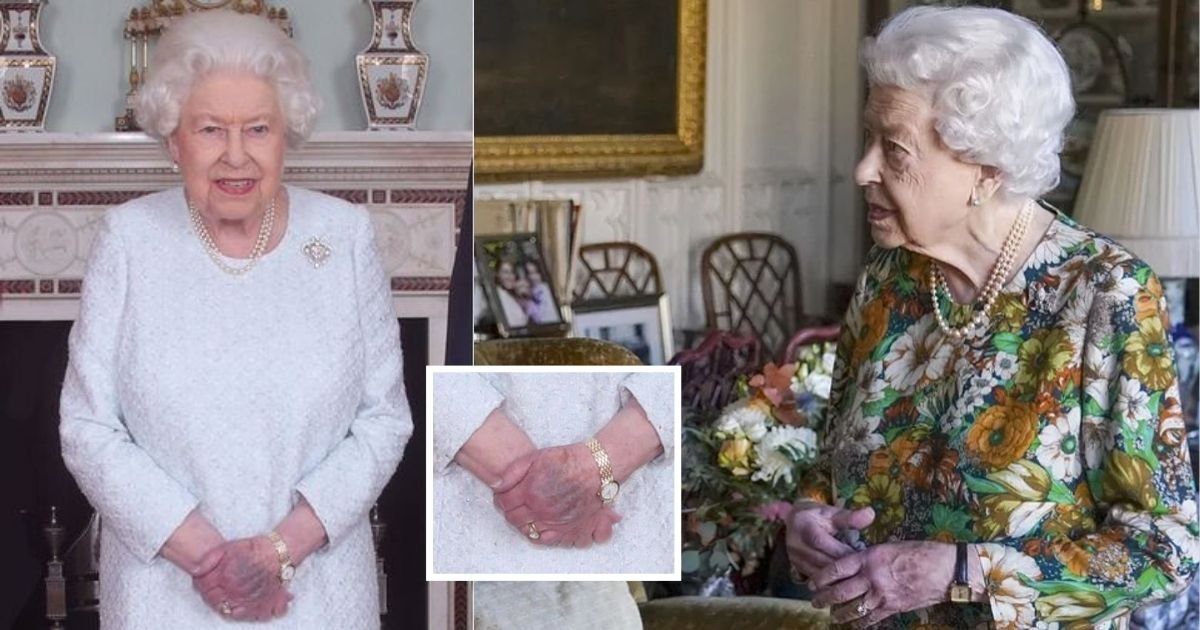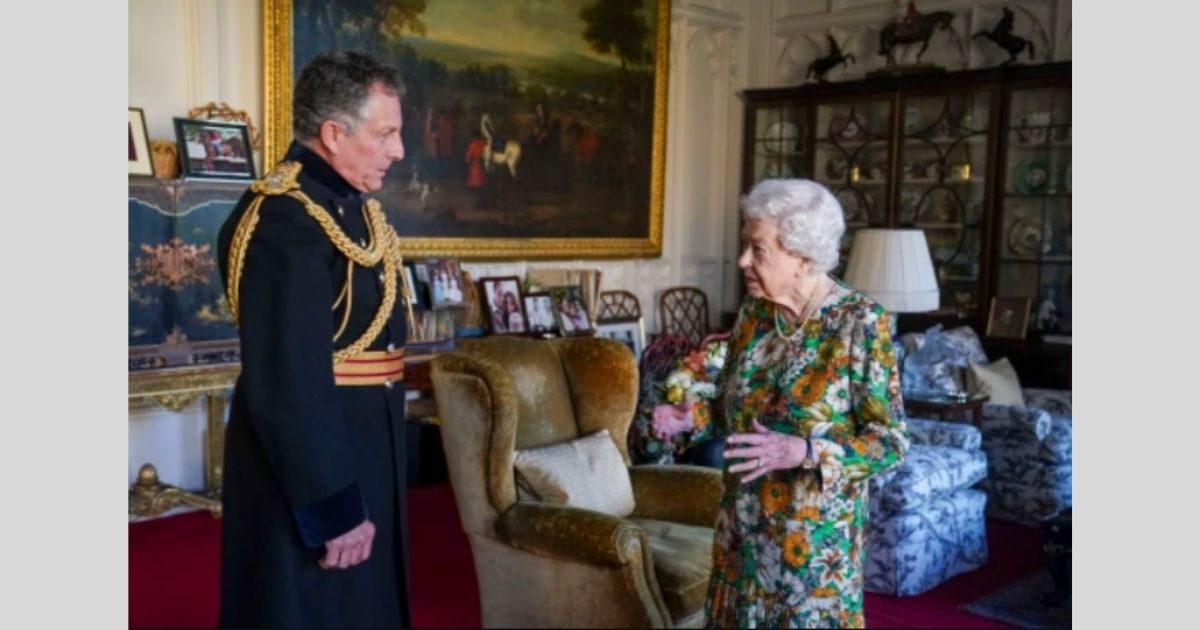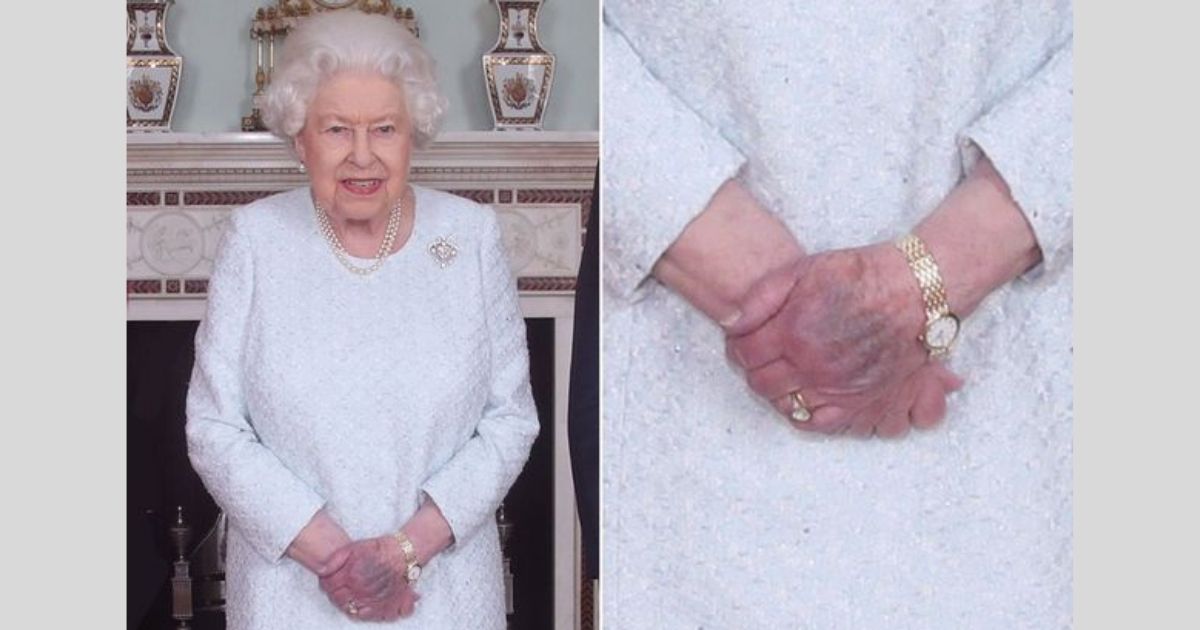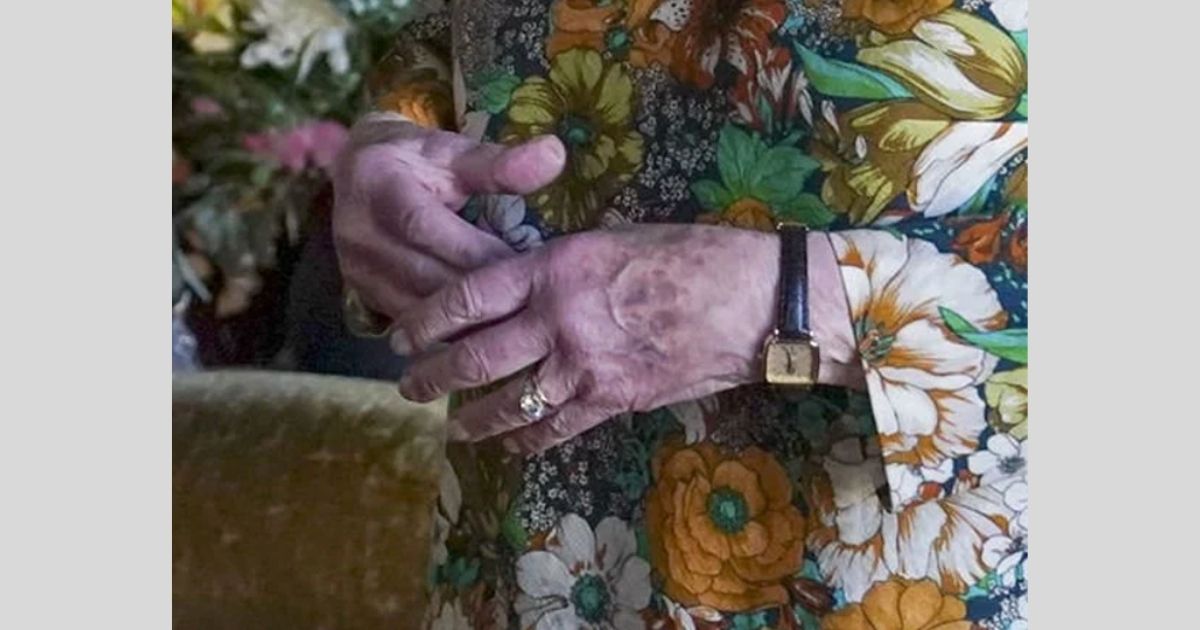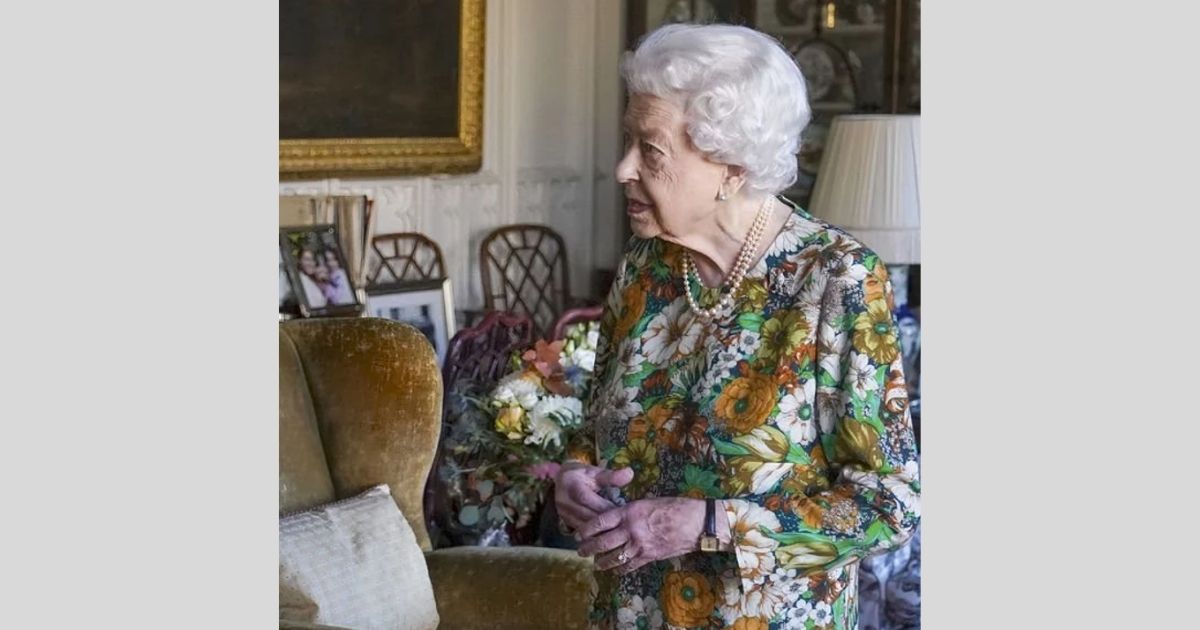Queen Elizabeth II, 95, pleased royal fans as Her Majesty stood by herself smiling during her first meeting since her back injury.
However, recent pictures of the Queen sparked health concerns as her hands appear to be purple in color.
The 95-year-old monarch has been following the doctors’ orders to rest for over a month to recover and had missed important engagements since.
But on Wednesday, the Queen held a face-to-face meeting with General Sir Nick Carter, the Chief of the Defence Staff.
In the official photos released by Buckingham Palace, both Her Majesty and General Sir Carter’s hands looked dark purple.
While the purple shade could just be a result of poor lighting in the room, health professionals warned that purple skin can be a sign of poor blood circulation.
Having ‘purple hands’ can occur during winter, which causes the blood vessels and arteries to narrow, therefore restricting the blood flow and limiting oxygen to the heart.
“It might be Raynaud’s phenomenon or just really cold hands!” Dr Jay Verma, from the Shakespeare Medical Centre, told Metro UK. “The purple is due to deoxygenated blood.”
According to UK’s National Health Service or NHS, the Raynaud phenomenon is common and does not normally cause severe problems. It can be treated easily by keeping warm and the skin usually goes back to its normal color after a few minutes or hours.
In 2019, Queen Elizabeth has previously been photographed with a purple discoloration on her hands, when royals from Jordan came to visit Britain.
Dr Giuseppe Aragona, a medical GP and an Online Doctor for Prescription Doctor, there are several medical explanations as to why the Queen’s purple hand returned.
“There are a few different reasons for why the Queen’s hands are so purple: a lack of circulation, frail skin, exposed veins, bruising, a leakage of blood to the tissue beneath the skin causing the color,” Dr Aragona explained.
“It could be Cyanosis which occurs when there is not enough oxygen in the blood,” he added. “Blood which has a normal amount of oxygen is a deep red and means your skin is its normal color, however low oxygenated blood is bluer which causes your skin to have a purple hue.”
‘It is known that Cyanosis can develop quicker if the person has suffered a minor health problem,” he said. “So this could be linked to her recent injury.”


